The views expressed in our content reflect individual perspectives and do not represent the authoritative views of the Baha'i Faith.
Today, June 27th, America celebrates Helen Keller’s birthday.
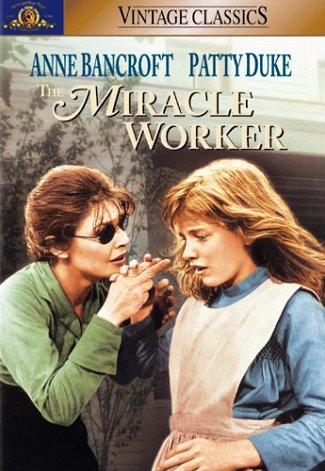 But people all around the world know about Helen Keller. Movies, books and plays have made her famous; her struggle to overcome her blindness and deafness, acquired after an early childhood illness, made her a hero to millions, disabled or not; and the Disney film The Miracle Worker cemented her legacy as a courageous, independent spirit determined to understand a world she couldn’t see or hear.
But people all around the world know about Helen Keller. Movies, books and plays have made her famous; her struggle to overcome her blindness and deafness, acquired after an early childhood illness, made her a hero to millions, disabled or not; and the Disney film The Miracle Worker cemented her legacy as a courageous, independent spirit determined to understand a world she couldn’t see or hear.
But most of us don’t know — because our history books and popular media don’t tell us — that Helen Keller advocated for and accomplished much more than her disabilities dictated.
Born in 1880, Helen came of age as the 20th Century dawned. The first deaf and blind person to earn a Bachelor’s Degree, her education and her life experience led Helen to a life of activism and altruism. She became a defiant pacifist rebel against war, corporate greed, labor injustice and the extremes of wealth and poverty. In 1912, while Abdu’l-Baha visited North America and forcefully spoke out against the great injustices excessive wealth and terrible poverty engendered, Helen Keller echoed his deep concerns with her own:
Why in this land of great wealth is there great poverty? Why [do] children toil in the mills while thousands of men cannot get work, why [do] women who do nothing have thousands of dollars to spend?
Keller’s deep concern for the poor and the oppressed led her to life as a social justice activist, working for an end to child labor, speaking out as a suffragette for women’s voting rights, co-founding the American Civil Liberties Union (ACLU) and advocating for the disabled:
I was appointed on a commission to investigate the conditions of the blind. For the first time I, who had thought blindness a misfortune beyond human control, found that too much of it was traceable to wrong industrial conditions, often caused by the selfishness and greed of employers. And the social evil contributed its share. I found that poverty drove women to a life of shame that ended in blindness.
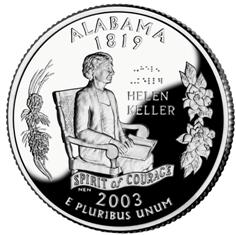 Keller’s reference to prostitution and syphilis, the leading cause of blindness at the time, helped bring a hidden problem to light. Amazingly, she joined the picket line in the Actors Equity strike against Deliverance, the 1919 Hollywood film about her own life, foregoing her own personal interests and the riches a successful movie could deliver, all to better the lives of others. She wrote for the Wobblies, the International Workers of the World labor movement. And she consistently pressed for justice and the realization of the oneness of humanity beyond any disease or disability.
Keller’s reference to prostitution and syphilis, the leading cause of blindness at the time, helped bring a hidden problem to light. Amazingly, she joined the picket line in the Actors Equity strike against Deliverance, the 1919 Hollywood film about her own life, foregoing her own personal interests and the riches a successful movie could deliver, all to better the lives of others. She wrote for the Wobblies, the International Workers of the World labor movement. And she consistently pressed for justice and the realization of the oneness of humanity beyond any disease or disability.
Helen Keller had an active and deeply-felt inner life, and wrote about it in her spiritual autobiography, called My Religion:
Since my seventeenth year, I have tried to live according to the teachings of Emanuel Swedenborg. By ’church’ he did not mean an ecclesiastical organization, but a spiritual fellowship of thoughtful men and women who spend their lives for a service to mankind that outlasts them. He called it a civilization that was to be born of a healthy, universal religion—goodwill, mutual understanding, service from each to all, regardless of dogma or ritual.
Then, in later life, Helen received a book called Baha’u’llah and the New Era — one of the first Baha’i books in Braille — and said this:
The philosophy of Baha’u’llah deserves the best thought we can give it. I am returning the book so that other blind people who have more leisure than myself may be “shown a ray of Divinity” and their hearts be “bathed in an inundation of eternal love.”
I take this opportunity to thank you for your kind thought of me, and for the inspiration which even the most cursory reading of Baha’u’llah’s life cannot fail to impart. What nobler theme than the “good of the world and the happiness of the nations” can occupy our lives? The message of universal peace will surely prevail. It is useless to combine or conspire against an idea which has in it potency to create a new earth and a new heaven and to quicken human beings with a holy passion of service. – Appreciations of the Baha’i Faith, p. 54.
Whatever she called her own beliefs, Helen Keller led the life of a true Baha’i, devoting her talents and energies to that “healthy, universal religion” that works to establish justice, peace and unity among all people.


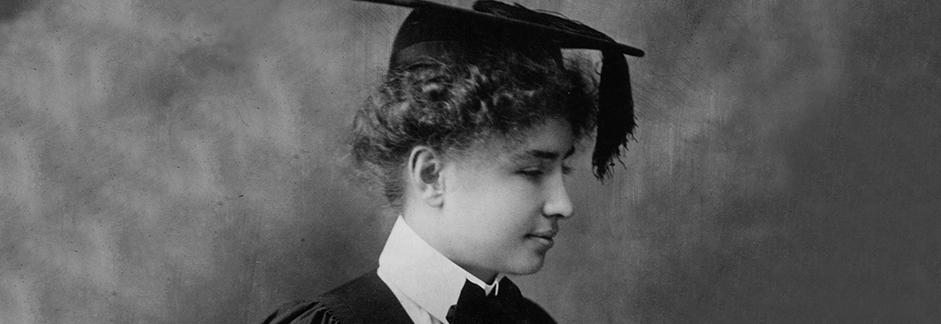

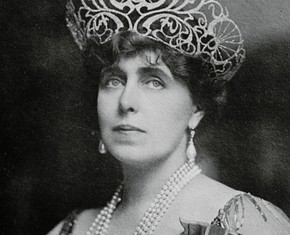

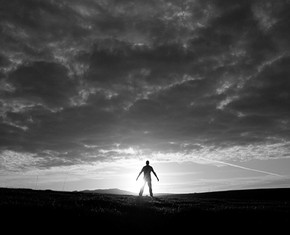









Comments
Sign in or create an account
Continue with Googleor